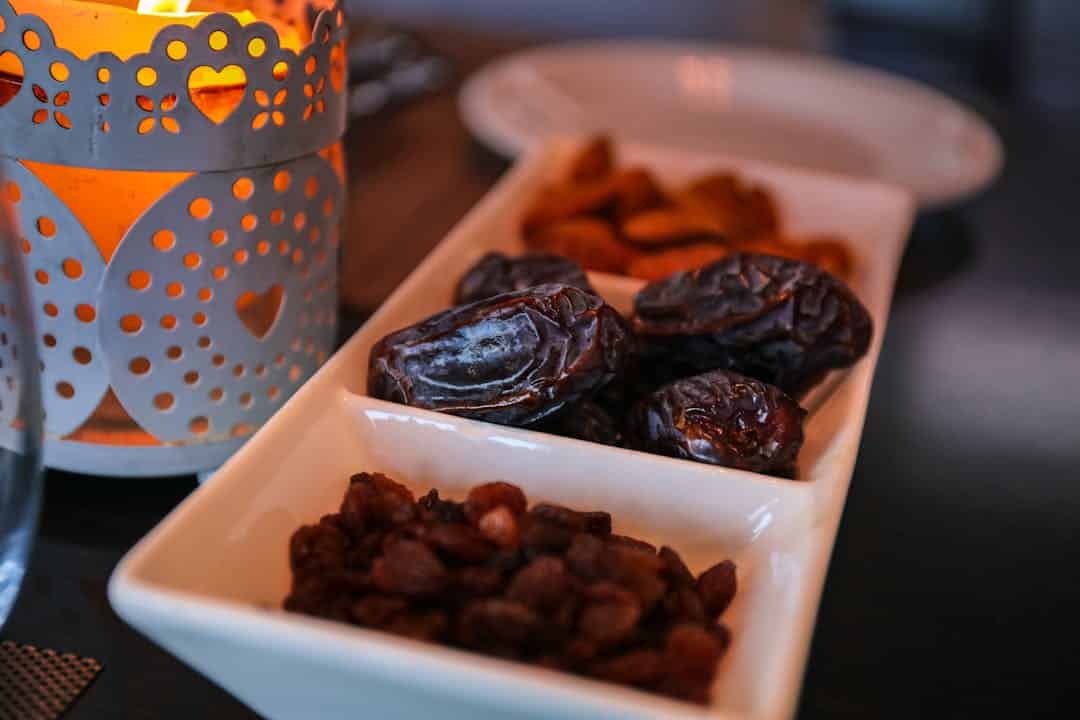Ramadan 2024
The ninth month of the Islamic lunar calendar is a time of great importance for Muslims all over the world. In 2024, it started on the night of Monday, March 11th, and will end on Tuesday, April 9th. But, the exact dates may change a little depending upon the official sighting of the moon’s crescent. This time goes beyond mere fasting; it is a complete package of spiritual advancement, increased devotion, and unity.
The Essence of Ramadan: Sawm (Fasting)
The foundation of Ramadan is Sawm, which is a period of refraining from food, drink, and other sensual activities from sunrise to sunset daily. This practice goes beyond physical hunger; it creates self-control, sympathy for the underprivileged, and faith in God’s gifts. Those who always have to seek food and water are the people Muslims are reminded of to create in their sympathy and the habit of helping others.
The duration of fasting hours will generally differ by location, with the usual range being between 12 and 17 hours. Children, pregnant women, the elderly, and travelers are the exemption cases. These exclusions prevent any individual’s health from being jeopardized during the month of Ramadan.
Beyond Abstinence: A Month of More Devotion
Fasting in Ramadan is not only the control of the body. It is a moment of greater spiritual bonding. Muslims elongate their prayers (Salat), including Taraweeh, a particular night prayer performed all through Ramadan. Recitation of the Quran, the holy book of Islam takes center stage with many Muslims trying to finish a complete reading in the month.
Such concentration on prayer generates the possibility of self-analysis, penitence, and rededication to Islamic ideals. Mosques come alive with recitations and collective prayers, creating an ambiance of brotherly and sisterly love.
Charity and Compassion: Zakat and virtuous acts.
Zakat, one of the Five Pillars of Islam, is a compulsory charitable act that should be performed by every Muslim having a certain level of wealth. The importance of Zakat is particularly emphasized during Ramadan, with many people preferring this holy month as the time to fulfill their yearly obligation. Furthermore, Muslims are enjoined to go further than Zakat and actively look for ways of spending on charity. Soup kitchens run full, donations to the neediest skyrocket, and acts of empathy become more common.
Strengthening the Community: Suhoor, Iftar, and Family Meals
Ramadan nurtures the strong spirit of a community. Suhoor is consumed as a family meal. In mosques, Suhoor gatherings are common and create unity before the fast starts.
At the approach of dusk, Muslims are anxious for the Iftar or breaking of fast. It is a happy meal which is observed over dates and water and followed by a big meal. During Iftar, families and friends get together to break the fast, exchange stories, jokes and to strengthen their bonds with each other through a cand common experience.
These get-togethers go beyond the family proper and involve neighbors, extended families, and the less privileged within the community. Iftar meals are often organized in mosques to allow everyone to break their fast in a comfortable and friendly place.
Laylat al-Qadr: The For of Power
Laylat al-Qadr, also commonly referred to as the Night of Power, is one of the most important nights of the month of Ramadan. This is believed to be the night the Quran was first revealed to Prophet Muhammad (PBUH). Muslims spend this night in extra prayers and devotion, asking for God’s mercy and rewards. A good number of them keep vigil during the night with special prayers and recitation of the Quran.
Eid al-Fitr: Iftar Celebration
Eid al-Fitr is the conclusion of Ramadan and it is a beautiful celebration. Muslims wear their best clothes, go to special Eid prayers, exchange gifts, and have festive meals with loved ones. The mood of Eid is that of appreciation, pardon, and revival. The month of self-discipline and dedication is over, and it is time to rejoice in the blessings received and the spiritual progress made.
Ramadan in the contemporary world
Living in a modern world of fast-paced life makes Ramadan observance unique challenges. It could be challenging to balance work or school schedules with fasting and heightened religious practices. Nonetheless, Muslim communities have adjusted whereby most workplaces provide flexible hours or prayer breaks. Lectures and programs that are intended for working professionals and students are frequently held in mosques.
Technology too has a great part to play in Ramadan observance. Apps and websites offer prayer times, Ramadan calendars, and even online Quran recitations. Muslims can remain connected to their communities through the social media groups that organize discussions and offer sup during Ramadan.
- Ramadan functions as an opening for inter-faith dialogue and comprehension. By learning
A Journey Through Time: Ramadan and its Significance to Muslims
Also Check: NRU Times
Ramadan, the ninth month in the Islamic calendar, is a period of great importance for Muslims around the globe. It is a month of fasting, prayers, contemplation, and community. However, what is the origin of this tradition and why is it so significant? Join me on the trip back in time and explore the history and the meaning of Ramadan.
A Look Back: Ramadan Origins
Ramadan’s history goes back to centuries, even before Islam. The month of Ramadan was also a holy time in ancient Arabia. It was a time of peace and calm in which warring tribes would sheath their swords and indulge in contemplation.
The event took place during Ramadan, in the year 610 AD, according to Islamic tradition. The first verses of the Quran, Islam’s holy book, were believed to have been revived from the Angel Gabriel to the Prophet Muhammad (PBUH) on the Night of Power (Laylat al-Qadr).
This discovery was a pivotal turning point in history that set the stage for the Islamic religion. Afterward, The Quran itself mentions Ramadan and it is identified as the month in which “the Quran was revealed.”
The Importance of Fasting: One of the Five Pillars of Islam
Fasting (Sawm) during Ramadan has been one of the Five Pillars of Islam that is the basic practice of the religion. Abstaining from food, drink, and other activities from dawn to dusk serves multiple purposes:Abstaining from food, drink, and other activities from dawn to dusk serves multiple purposes:
- Self-Discipline: Fasting is a teacher of self-discipline that aids the protection of the mind and body from temptation.
- Empathy for the Less Fortunate: Through hunger and thirst, Muslims develop a sense of empathy for those who suffer from a lack of food and water every day.
- Gratitude for Blessings: With a month of self-restraint, ending the fast enables them to cherish simple pleasures such as a cool drink and a great meal.
- Spiritual Connection: Fasting helps Muslims concentrate on their inner life and develop their spiritual bond with Allah.
- Beyond Fasting: A Month of More Intense Devotion
Ramadan is not only about fasting. It’s a time of increased dedication to Islam. Here are some key aspects:Here are some key aspects:
- Increased Prayer: Muslims pray many times a day, including special Taraweeh prayers at night in mosques.
- Focus on Quran: Reading and memorizing the Quran become central with many people aiming to complete a full reading during the month.
- Reflection and Repentance: This month is a time for self-criticism, when Muslims should notice their faults and ask for forgiveness from God.
Strengthening the Community: Charity and Unity
Ramadan fosters a strong sense of community: Ramadan fosters a strong sense of community:
- Zakat: Charity (Zakat) is given prominence. Wealthy Muslims give alms to those in need, thus enhancing the social capital of the society.
- Suhoor and Iftar: Suhoor and Iftar, which is the pre-dawn meal and the breaking of the fast, are associated with a sense of community as they are shared with families, friends and neighbors.
- Mosques as Hubs: A mosque lives a busy life, it, is visited by worshippers, reciters, lively parades, and groups of people engaged in community activities.
Laylat al-Qadr: An Important Night
Laylat al-Qadr, or the Night of Power, is one of the most sacred nights in Ramadan. For Muslims, it is the night when the Quran was revealed. The night is celebrated with more fervor and prays, asking for special blessings from God.
Eid al-Fitr: End of Ramadan Festivities
The end of Ramadan is celebrated through the joyful festival of Eid al-Fitr.Muslims celebrate by:
- Dressing Up: Dressing in new clothes and taking part in the special Eid prayers.
- Exchanging Gifts: Gifts one’s loved ones with presents to spread happiness.
- Feasting and Family Gatherings: Eating tasty dishes with your close people.
Ramadan’s Significance Beyond Muslims
Ramadan provides an opportunity for interfaith dialogue and comprehension. Through gaining knowledge about this holy month, people from other cultures can learn about Islamic traditions and values in more depth.
To sum up, Ramadan is not only about fasting. It is the time of spiritual regeneration, individual development, and reinforcement of community ties. It is a quest that returns Muslims to the beginning of their faith and allows them to come back to their selves and God.


